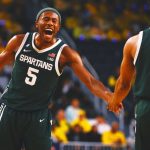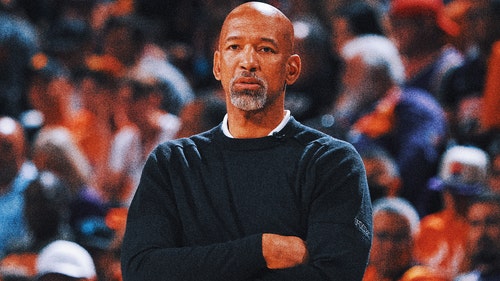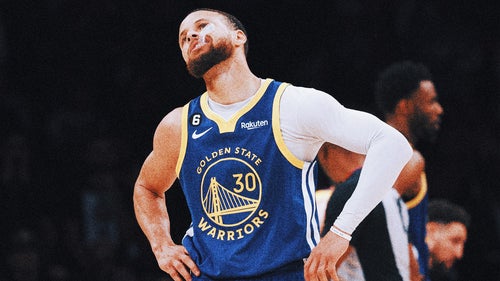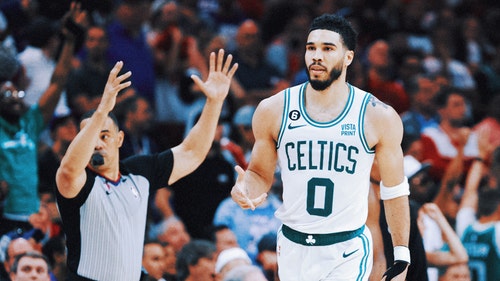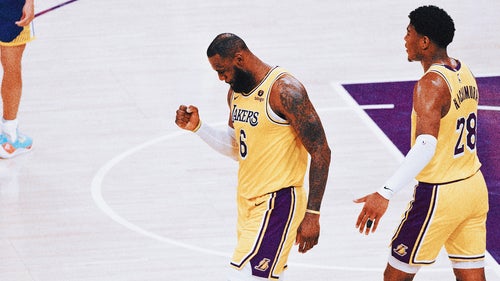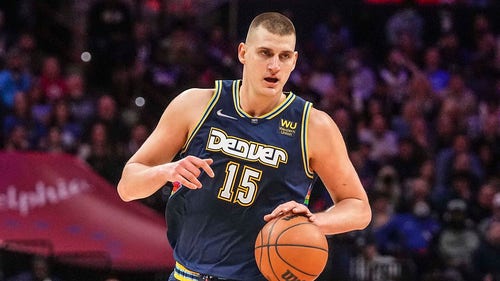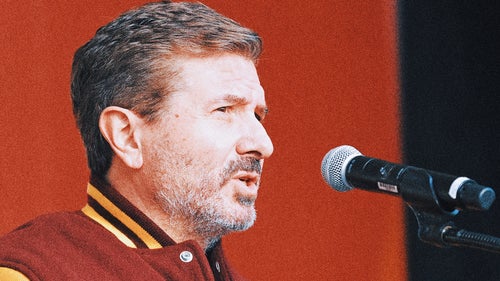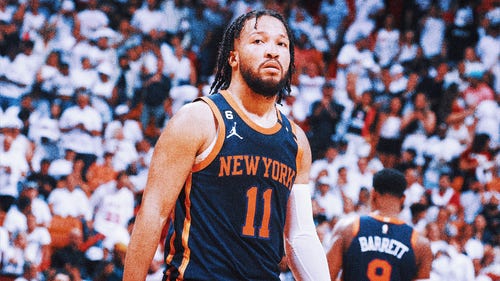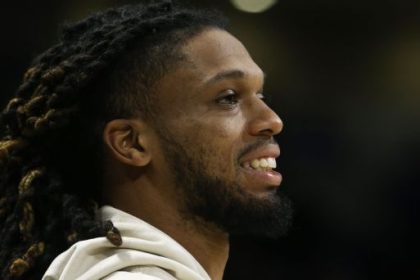Yaron Weitzman
FOX Sports NBA Writer
BOSTON — Four years ago, the Philadelphia 76ers fell in the seventh game of the playoff’s second round on a buzzer-beating, tie-breaking quadruple-doink. Two years ago, the Sixers fell in the seventh game of the playoff’s second round by seven on The Pass.
On Sunday, the Sixers once again fell in the seventh game of the playoff’s second round, only this time, their opponent, the Boston Celtics, didn’t need help from a soft rim or short-circuiting star. This time, the game was over long before the final horn. The Celtics, who have now eliminated the Sixers from the playoffs in three of the past six seasons, played better, smarter and harder, carving up Philadelphia to a final score of 112-88, which doesn’t even do the beat down justice. To pull from one of the team’s old ad campaigns, process to progress, this is not.
“We played great all year, and this loss absolutely diminishes that,” Sixers head coach Doc Rivers told reporters after the game. “I thought we took another mental step this season. And then tonight I thought we took that step backwards.”
How does this happen? How can a team that at different points throughout the season looked like a championship contender be so thoroughly outclassed? How can a team that, less than 72 hours ago, had a lead with under five minutes remaining in a game where a win would have clinched the series, fall so far so fast?
Sure, there were tactical reasons behind the Sixers’ collapse. Celtics head coach Joe Mazzulla’s pre-Game 6 decision to insert Robert Williams III into his starting lineup, going back to his double-big alignment that last season had propelled the Celtics to the Finals, was one for which the Sixers had no answers.
Knowing Williams was behind him, Celtics big man Al Horford felt comfortable crowding Embiid and taking away his jump shot. Knowing Williams was in front of him, Embiid ceased attacking the rim. Embiid finished the game with a paltry 15 points on an ugly 5-for-18 shooting.
Harden, meanwhile, seemingly worried about Williams sliding over from the weak side and swatting his shot, passed the ball out almost every time he reached the paint. He finished with just nine points on 3-for-11 shooting. He turned the ball over five times.
ADVERTISEMENT
“Defensively, they took away our bread and butter, which is the pick-and-roll between me and James,” Embiid said after the loss. “We didn’t get a lot of those shots that we usually get. They made a great adjustment and they forced … James to attack and make plays out of that, and either finish over Rob or kick it out to the corner and force the other guys to make shots. So I thought for the most part they did a good job as a team, every time I had the ball they were pulling over to make sure there was no [space] for me to drive.”
There’s more to it, though. The double-big gambit might have worked, but this latest Sixers collapse wasn’t just an example of a schematic change stymying a team’s attack. Describing it as one is a cop-out, and overlooks the real reasons for the defeat. Harden, after all, is a Hall of Famer. Embiid, after all, was just recently named the league’s Most Valuable Player. Stars of this caliber are supposed to be scheme-proof. And yet in the most important game of the season neither put forward an adequate performance.
There was Embiid falling asleep while ball-watching and a backdoor finish. And Harden tossing up junk from the midrange because he was more focused on grifting fouls than attacking the hoop. And Embiid grabbing just four rebounds in the game’s first three quarters. And Harden only trying four shots from inside the paint. And Embiid getting the ball under the rim and, instead of slamming it home, kicking it out to the perimeter. And Harden calling off a pick from Embiid and then airballing an ugly step-back 3. And Embiid looking like he’d never before seen a double-team. And Harden turning a wide open lay-up into a flagrant foul for Celitcs, which sounds like the premise of an unsolvable riddle. And Embiid and Harden combining for more turnovers (nine) than field goals (eight), and with the game falling out of the Sixers’ grasp amid a 24-3 Celtics third-quarter run, joining forces for a backcourt violation — which, somehow, might have been the most connected the two looked all game.
“I gotta be better,” Embiid said. We’ve seen this show from Harden before, but Embiid no-showing a Game 7, especially one representing such a fork-in-the-road moment for the franchise, 10 years to the day that Sam Hinkie was introduced as the Sixers’ GM, was the bigger disappointment. For years, we’ve watched others take the blame for the Sixers’ playoff failures. First it was Bryan Colangelo’s fault. Then it was Brett Brown’s fault. Then it was Elton Brand and Al Horford’s fault. Then it was Ben Simmons‘ fault. Then it was Harden’s fault. But aside from ownership, the only constant over the previous six seasons — all of which have ended with the Sixers heading home before the conference finals, a round they haven’t reached since 2001 — has been Embiid.
The Sixers’ star is starting to develop a problematic playoff résumé. This year, once again, his number plummeted in the postseason. He finished the playoffs averaging 23.7 points per game on 43.1 percent shooting, after averaging 33.1 on 54.8 percent shooting during the regular season. His assists fell from 4.2 to 2.7 and his turnovers jumped from 1.7 to 3.9. The Sixers might have the MVP, but on Sunday it was Celtics star Jayson Tatum — who finished with 51 points on 28 shots — who was the best player on the court.
The Sixers now find themselves at a crossroads. It’s unclear how they get better. The first decision will be whether to bring back Rivers. Asked after the game if he plans on returning, Rivers said, “Yeah. I think I got two years left [on my contract].” But he also acknowledged that, “No one’s safe in our business.”
Firing coaches appears to be en vogue these days. And the availability of a number of quality coaches — Mike Budenholzer, Monty Williams, Nick Nurse — could make a change enticing. Yet placing the blame for this season at Rivers’ feet would be a mistake. Under his watch, the Embiid-Harden pairing formed the league’s most potent pick-and-roll, Tyrese Maxey improved as a player and the Sixers gutted out a bunch of wins. A coach with the creativity of, say, Nurse, could perhaps be an upgrade. But that’s not solving all the Sixers’ problems.
“I [think] he’s done a fantastic job,” Embiid said. “He came here, I think we’ve gotten better over the year … we got a great relationship.”
Harden, upon being asked about Rivers, was, well, less enthusiastic. “Our relationship is OK,” he said. Him not being a huge fan of his coach would be a problem — if we were sure Harden planned on returning to Philadelphia. He has a player option on his contract, which he’s expected to decline in order to become a free agent. There’s also sorts of rumors and speculation that he’d like to return to his former team, the Houston Rockets.
“I haven’t even thought about it,” Harden said when asked after the game about his contract plans. Making this more complicated is all the leverage he has over the Sixers. Harden, no doubt, would like one more big pay day. But at 34 years old, and with his body and play clearly in decline, it’s probably not a great idea.
That said, what if the Rockets are willing to offer Harden so much money that it would require the Sixers to counter with a deal bordering the max? That’s not a contract they should be handing out, but, thanks to Tobias Harris‘ mega-deal, if they lose Harden, they have no ability to replace him. Their choices, it seems, are to either keep Harden by overpaying or lose him for nothing and, with that, their status as a championship contender. In other words: there are no good options.
All of which is why Sunday’s Game 7 performance is going to loom so large for so long. This really did feel like the Embiid-led team’s last stand. Not only did they lose, but they barely put up a fight.
“I thought we had the right group,” Rivers said. “I really did.”
They didn’t. And for that current group, this might have been the last shot.
Yaron Weitzman is an NBA writer for FOX Sports. He is the author of “Tanking to the Top: The Philadelphia 76ers and the Most Audacious Process in the History of Professional Sports.” Follow him on Twitter @YaronWeitzman.
NBA trending

Get more from National Basketball Association Follow your favorites to get information about games, news and more


